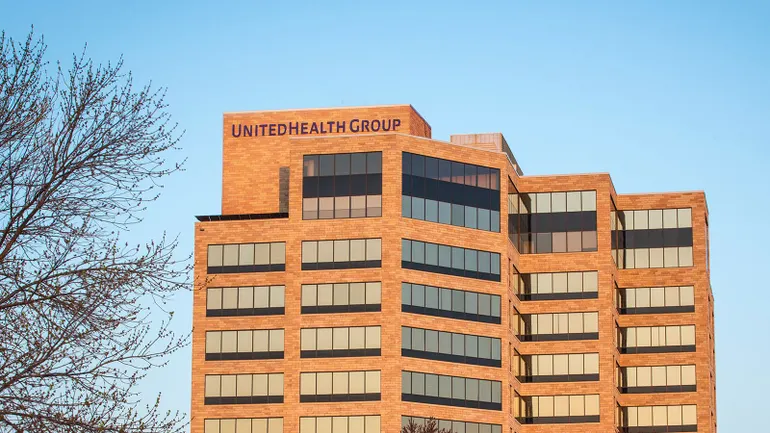UnitedHealth, once the darling of Wall Street, is being downgraded by investment banks after the company pulled its profit guidance for 2025, abruptly swapped out its CEO and reportedly faces a criminal investigation by the Justice Department.
Together, the challenges have tanked UnitedHealth’s stock to pre-pandemic lows in just one month.
Last week, Raymond James and Bank of America both downgraded UnitedHealth’s stock, from “strong buy” to “market perform” and “buy” to “neutral,” respectively.
And on Monday, TD Cowen downgraded UnitedHealth from “buy” to “hold.”
Investors’ points of concern include higher utilization in Medicare Advantage plans spreading to more complex patients, like people dually eligible for Medicare and Medicaid.
In addition, changes to risk coding put in place by the Biden administration appear to be hampering UnitedHealth’s ability to upcode, or account for more members’ sicknesses in return for higher reimbursement from the federal government. UnitedHealth’s insurance arm UnitedHealthcare is the largest provider of the privatized Medicare plans and upcodes at higher rates than its peers in the MA program, according to research.
“We suspect the v28 risk model is disproportionately impacting [UnitedHealth],” wrote TD Cowen analyst Ryan Langston in his note downgrading the company’s stock. “Accelerating MA care activity with potential acceleration in Commercial/Medicaid further complicates the story.”
UnitedHealth’s stock has also been pressured by a report the Wall Street Journal published Thursday finding that the Department of Justice is investigating UnitedHealth for possible criminal Medicare fraud, an allegation UnitedHealth denies.
At the close of last week, UnitedHealth was trading at its lowest level since the summer of 2020, with five years of stock gains erased in about a month.
Between mid-April and mid-May, UnitedHealth lost roughly $266 billion in market capitalization — half of its overall value — leading analysts to reverse their bullish outlook on the company’s future prospects, especially given that the challenges facing UnitedHealth don’t appear to be touching other insurers.
UnitedHealth’s stock has halved in value over one month
$UNH price at close, Jan. 2025 to date
Amid the turbulence, UnitedHealth CEO Andrew Witty stepped down last week citing personal issues.
“As of now, we view [UnitedHealth’s] issues as company specific, and we think the quick resignation of the CEO indicates this is more likely to be internal than external,” Bank of America research analyst Joanna Gajuk wrote in her note downgrading the company.
However, UnitedHealth’s stock has experienced recent uptick after a number of company insiders, including UnitedHealth’s new CEO, purchased millions of dollars in stock.
Stephen Hemsley, UnitedHealth’s board chair who replaced Witty as the company’s chief executive, purchased $25 million in stock on Friday, according to a securities filing.
CFO John Rex also bought about $5 million in stock, while three company directors — John Noseworthy, Kristen Gil and Timothy Flynn — also purchased shares.
Despite UnitedHealth’s troubles, many investors believe Hemsley is a good pick to usher the company back to profitable growth. The executive served as CEO from 2006 to 2017 and built UnitedHealth into the diversified healthcare giant it is today, containing a major health insurer, pharmacy benefit manager, physician network and health tech company.
During Hemsley’s tenure, UnitedHealth consistently outperformed earnings expectations — perhaps the reason UnitedHealth has approved a $61 million pay package for the new CEO.


